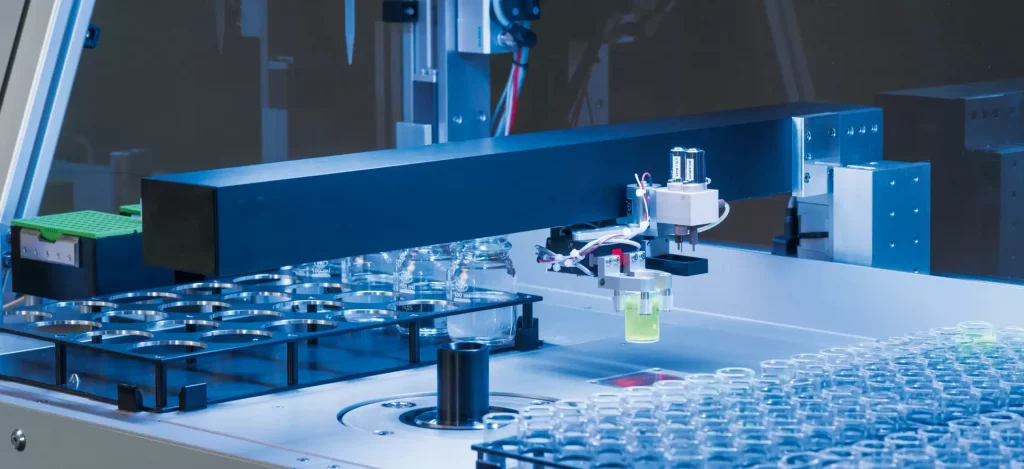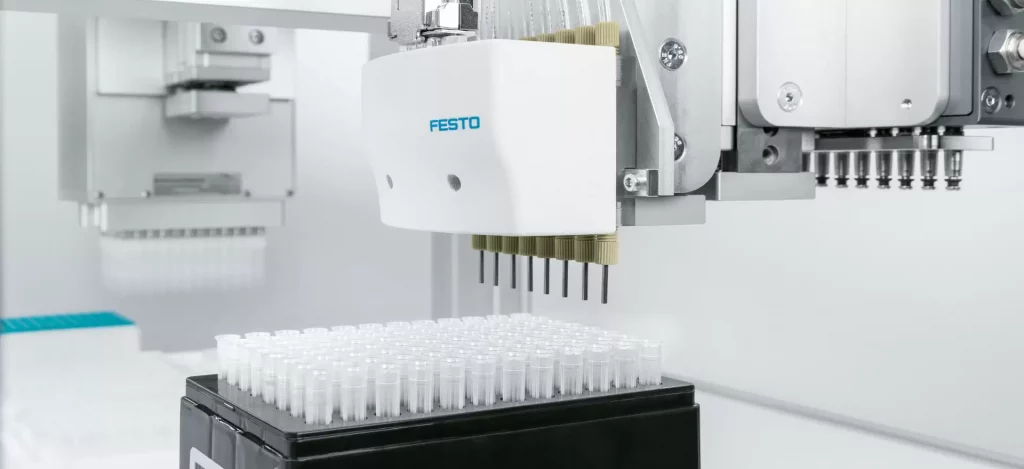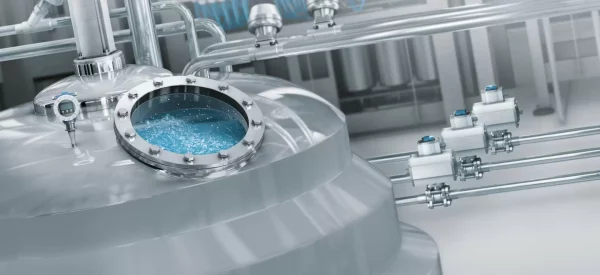There are over 1,000 biopharma companies in New England, and the life sciences industry is a top contributor to the New England economy, with year-over-year employment growth. What does this mean for your educational institution? You can contribute to the employment growth by providing a qualified talent pipeline to local companies in this in-demand sector. Check out this list of New England BioPharma companies to see which companies are close to your school or university.
Although slower to adapt than other industries, biopharma companies are accelerating their adoption of automation and industry 4.0. They are applying industry 4.0 technology to various laboratory automation processes, so teaching your students Industry 4.0 concepts will help them be even more valuable in future biopharma careers. Here are some examples of Industry 4.0 process that life sciences companies are using. Each company uses technology from the world-leading manufacturer of automation equipment for factories, Festo Automation.
Sample Handling
Synchron Lab Automation automates the collection of DNA from shredded plant material to help with plant breeding in the agricultural industry. With automation, they can collect 40,000 DNA samples per day.

Anton Paar, a laboratory equipment manufacturer, uses automation to save time and guarantee error-free analyses. Their Modular Sample Processor prepares samples that are then tested for specific properties.
Gas Handling
Modern valve technology helps regulate the control of medical gases and fluids. Musashi Medical Laboratory uses this technology to create a compact and convenient mobile oxygen system for people with chronic COPD who suffer from shortness of breath.
Liquid Handling
Companies use high-precision dispensing and positioning technology to handle liquids for medical and hospital environments. B. Braun Melsugen, a solutions supplier for the healthcare market, uses a range of machines and systems, from mixing systems to filling machines, sterilizers, inspection machines, and packaging machines, that are operated with pneumatic automation solutions.

Industry 4.0 skills are core to understanding how automated processes and technology in life sciences companies work. The same company that supplies companies worldwide with equipment for their manufacturing facilities is also well-known for its Festo Didactic division offering educational training equipment, online learning, and certifications to give students practical experiences with equipment that replicates what's used in the real world. For example, the Festo Industry 4.0 Certification Program supports training students for life sciences jobs in automated facilities.
Want to learn more about how you can train your students in Industry 4.0 skills relevant to local life sciences companies? Contact us!

